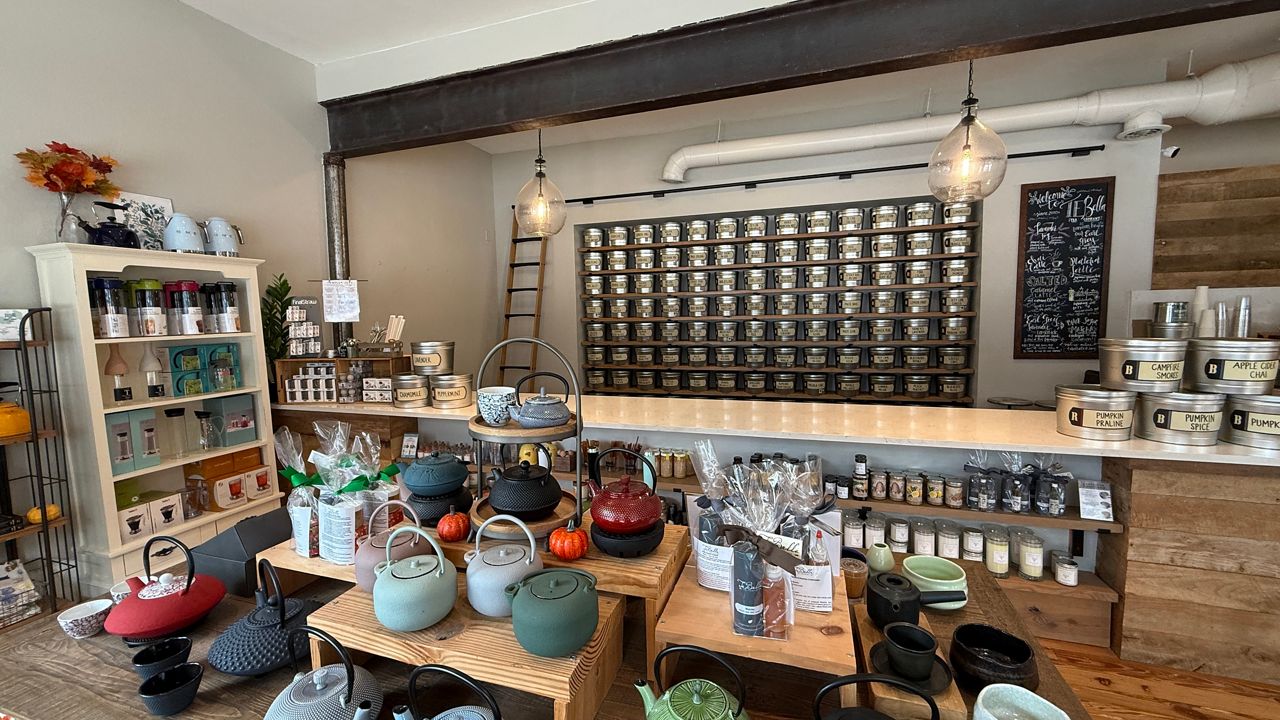ST. PETERSBURG, Fla. — Nearly all imported teas are subject to a tariff, but a recent executive order from President Donald Trump could remove reciprocal tariffs from many products that cannot be grown in the U.S. in future trade negotiations.
That includes some teas; however, the president specifically wrote his willingness to modify tariffs “will depend on numerous factors.”
“We’re not counting on anything, but it would be really great to see that come to fruition and to allow products like tea and coffee that really aren’t grown at scale the United States at all, and really have no domestic market, available without a tariff,” the order said.
Abigail StClair, founder and owner of TeBella Tea Company in St. Petersburg, is watching all of this closely, as in recent years, matcha tea has surged in popularity.
“We go through almost 200 pounds of matcha a month, so that’s a lot of matcha,” said StClair.
That’s about 10,000 cups across TeBella’s four locations and wholesale customers. Matcha sales have been increasing since StClair founded the tea business in 2010.
“It’s always been about the ritual for me. I love the moment that you take to sit and relax and kind of celebrate all that there is to enjoy and to love about tea,” she said.
The rising global demand has led to concerns of shortages, but StClair said they aren’t worried about their supply at the moment. Right now, she is more concerned about the uncertainty surrounding tariffs.
“We currently import on any given day from about 13 different countries, so it’s a lot to keep track of,” she said.
StClair said the unpredictability is the greatest challenge. She said it’s hard determining how much of a product to buy.
“I’ve had several instances where when I’m purchasing and when I’m receiving, the tariffs have changed, and that’s hard to predict. It’s hard to budget for that,” StClair said.
In November, the Supreme Court will consider whether President Trump has the power to impose sweeping tariffs.
